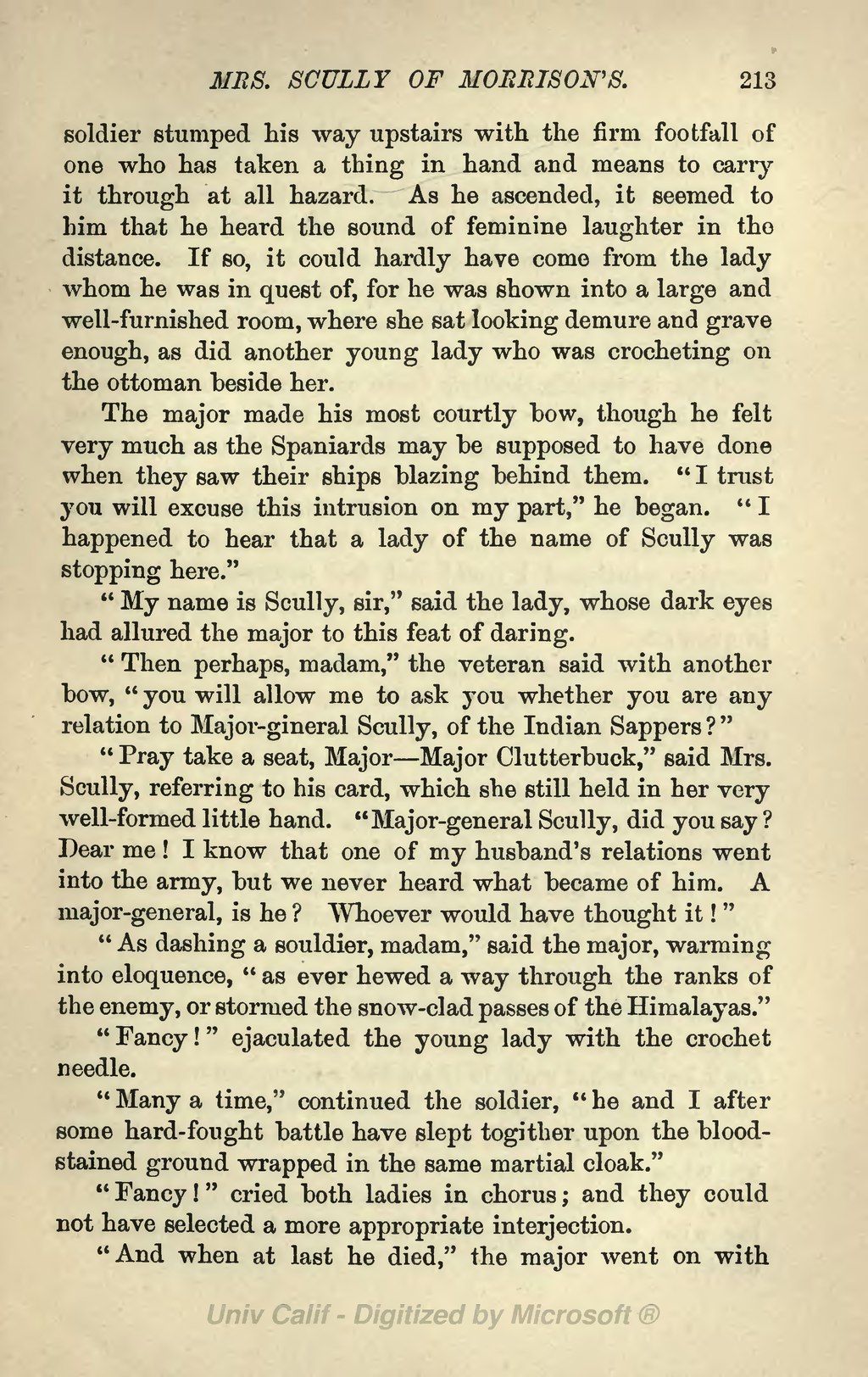soldier stumped his way upstairs with the firm footfall of one who has taken a thing in hand and means to carry it through at all hazard. As he ascended, it seemed to him that he heard the sound of feminine laughter in the distance. If so, it could hardly have come from the lady whom he was in quest of, for he was shown into a large and well-furnished room, where she sat looking demure and grave enough, as did another young lady who was crocheting on the ottoman beside her.
The major made his most courtly bow, though he felt very much as the Spaniards may be supposed to have done when they saw their ships blazing behind them. "I trust you will excuse this intrusion on my part," he began. "I happened to hear that a lady of the name of Scully was stopping here."
"My name is Scully, sir," said the lady, whose dark eyes had allured the major to this feat of daring.
"Then perhaps, madam," the veteran said with another bow, "you will allow me to ask you whether you are any relation to Major-gineral Scully, of the Indian Sappers?"
"Pray take a seat, Major—Major Clutterbuck," said Mrs. Scully, referring to his card, which she still held in her very well-formed little hand. "Major-general Scully, did you say? Dear me! I know that one of my husband's relations went into the army, but we never heard what became of him. A major-general, is he? Whoever would have thought it!"
"As dashing a souldier, madam," said the major, warming into eloquence, "as ever hewed a way through the ranks of the enemy, or stormed the snow-clad passes of the Himalayas."
"Fancy!" ejaculated the young lady with the crochet needle.
"Many a time," continued the soldier, "he and I after some hard-fought battle have slept togither upon the blood-stained ground wrapped in the same martial cloak."
"Fancy!" cried both ladies in chorus; and they could not have selected a more appropriate interjection.
"And when at last he died," the major went on with
